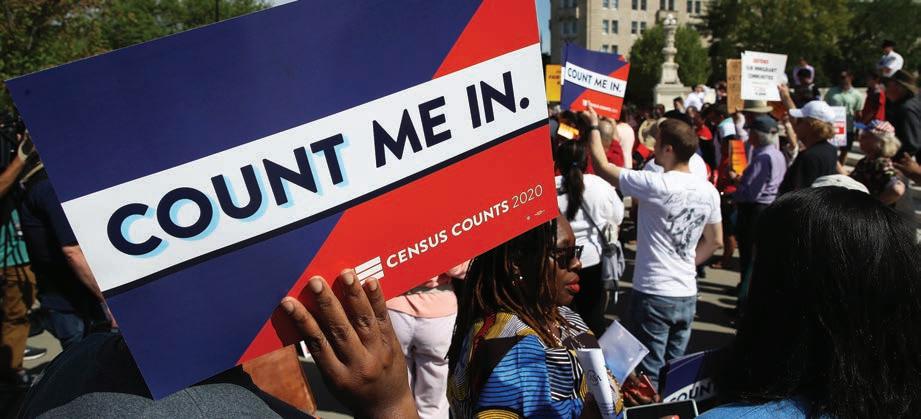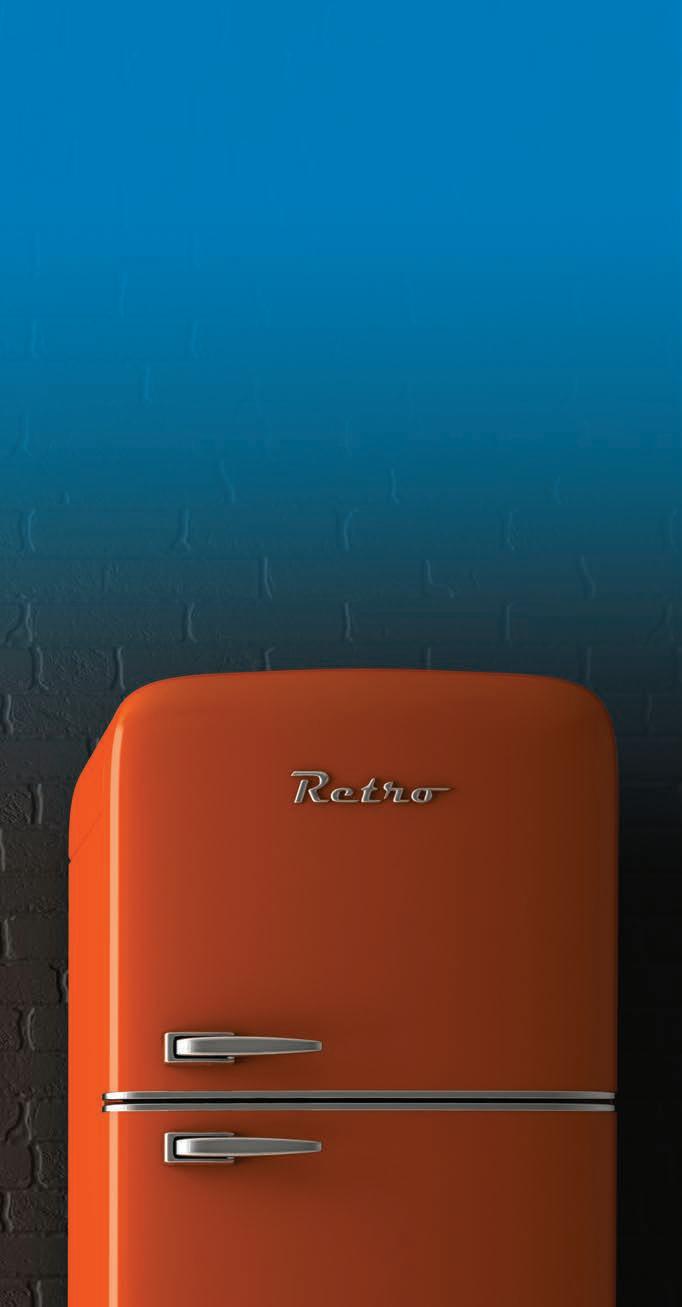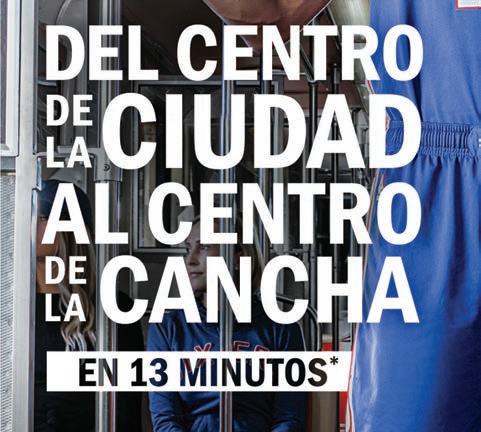
5 minute read
POLITICS POLÍTICA
THE ADVANCE OF THE CENSUS IS SHOWING A RACIAL IDENTITY CONFLICT FACED BY SOME PUERTO RICANS. EL AVANCE DEL CENSO ESTÁ MOSTRANDO UN CONFLICTO DE IDENTIDAD RACIAL AL QUE SE ENFRENTAN ALGUNOS PUERTORRIQUEÑOS. WHEN TO BE COUNTED IS A MATTER OF IDENTITY PUERTO RICANS AND THE CENSUS
PHOTO: Protesters gather outside the U.S. Supreme Court as the court hears oral arguments in the Commerce vs. New York case April 23, 2019 in Washington, DC. Photo by Win McNamee/Getty Images
Advertisement
FOTO: Los manifestantes se reúnen frente a la Corte Suprema de los Estados Unidos mientras la corte escucha los argumentos orales del caso Comercio vs. Nueva York el 23 de abril de 2019 en Washington, DC.. Foto de Win McNamee/Getty Images
De acuerdo a un reporte publicado por el New York Times, más de tres cuartas partes de los puertorriqueños se identificaron como blancos en el censo, pese a que gran parte de la población tiene ascendencia africana.
Esto revive la discusión nunca cerrada sobre cómo se definen las identidades de las poblaciones.
Uno de los aspectos que atraviesa esta identificación (o no identificación) con el término “negro” viene del idioma que se habla en la isla y los vocablos que desde la colonia se usaban para describir los distintos fenotipos: “mulato”, “trigueño”, “morena”, son palabras que están más interiorizadas en la cultura borinqueña (y latinoamericana, en general), que la forma americana en que se entiende la afirmación “I’m black” o “I’m African-American”.
Esta diferencia lleva a que muchas de las personas censadas no se identifiquen con las categorías que describen algunos rasgos que los caracterizan. El color de la tez no necesariamente
ENGLISH
permite a alguien dar cuenta de su identidad cultural y esto, a su vez, deriva en tergiversaciones sobre la manera en que se entiende la población y su representatividad.
Puede que algunas personas hayan marcado que son “blancos” porque las otras opciones que encontraban no incluían factores culturales con los que se identifican más y que englobarían como “puertorriqueños” (factores como la música, el baile, la comida, las inflexiones en el habla), pero en el uso de la categoría “blanco” también está el peligro de dejar para los registros estadísticos del país una imagen de la nación que no corresponde con la realidad de las calles y que sí puede ser nociva en términos de política pública, pues en la medida en que el país sea oficialmente más “blanco” habrá menos argumentos para desarrollar políticas diversas o luchar contra aquellas que puedan ser discriminatorias.
"Entre los grupos raciales y étnicos, se proyecta que sólo se contará en exceso a los blancos, mientras que se espera que otros grupos vean un recuento insuficiente [...] Ya sea un recuento excesivo o insuficiente, la preocupación es que la representación política y la financiación federal no se repartirá equitativamente después del censo de 2020", reporta NPR. Pese a que esta vez ha sido menor el porcentaje de puertorriqueños que se han identificado como blancos en el censo, en comparación con el censo hecho hace veinte años y a que hay varios esfuerzos ciudadanos para alentar a los puertorriqueños a marcarse como negros, la disyuntiva de la representatividad y la identidad permanece.
According to a New York Times report, more than three-quarters of Puerto Ricans identified themselves as white in the census, even though much of the population is of African ancestry.
This revives the never-ending discussion about how populations' identities are defined.
One of the aspects that crosses this identification (or non-identification) with the term "black" comes from the language that is spoken on the island and the words that since the colony were used to describe different phenotypes: “mulato,” “trigueño,” "morena,” are words that are more internalized in the culture of Puerto Rico (and Latin America, in general), than the American form in which the statement "I'm black" or "I'm African American" is understood.
This difference leads to the fact that many of the people registered do not identify with the categories that include some of their characteristics. The color of the complexion does not necessarily allow someone to account for their cultural identity and this, in turn, leads to distortions in the way the population is understood and represented.
Some people may have marked that they are "white" because the other choices they found did not include cultural factors with which they most identify and which they would embrace as "Puerto Rican" (factors such as music, dance, food, speech inflections). But in the use of the "white" category, there is also the danger of leaving for the country's statistical records an image of the nation that does not correspond to the reality on the streets and ESPAÑOL
that can be harmful in terms of public policy, because to the extent that the country is officially more "white" there will be fewer arguments to develop diverse policies or to fight against those that may be discriminatory.
"Among racial and ethnic groups, only white people are projected to be overcounted, while other groups are expected to see undercounts [...] Whether it's an overcount or undercount, the concern is that political representation and federal funding will not be fairly shared after the 2020 census", reports NPR.
Despite the fact that this time the percentage of Puerto Ricans who identified themselves as white in the census has been lower than it was twenty years ago, and that there are various citizen efforts to encourage Puerto Ricans to consider marking themselves as black, the dilemma of representation and identity remains.
Get a $50 rebate when you recycle an old, working refrigerator or freezer.
We’ll even pick it up forfree! peco.com/recycling
• Refrigerator or freezer must be plugged in and working at time of pickup.

• Refrigerator or freezer must be between 10 and 30 cu. ft. • Pickup crew will not collect refrigerators or freezers from homes with driveways of more than 200 feet.



INCLUSO LOS RECIÉN LLEGADOS A PHILLY COMO AL HORFORD SABEN QUE SEPTA ES LA FORMA MÁS RÁPIDA Y FÁCIL DE LLEGAR AL PARTIDO
888-573-2672
© PECO Energy Company, 2019
peco.com








